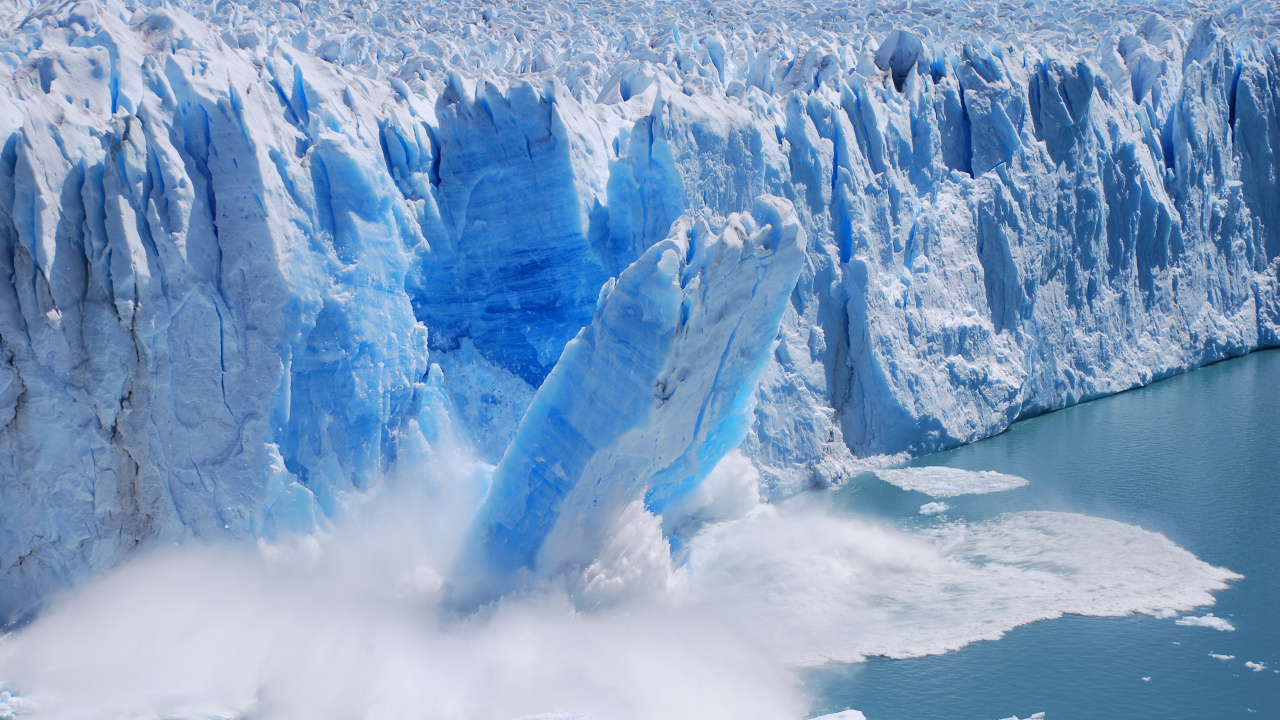Faster glacier melting mechanism could cause huge sea level rises
When it comes to the issue of climate change, opponents often argue that we have an incomplete understanding of Earth's systems. Although humanity has yet to discover all the secrets of the world, that doesn't mean we can't act on what we know. In many cases, as climatologists delve deeper into their research, they find even more evidence to support potential trouble ahead.
In the stark landscapes of Greenland, a team of intrepid researchers from the University of California, Irvine and NASA's Jet Propulsion Laboratory have discovered a hidden facet of the ice-ocean interaction. Their discovery could potentially upend our understanding of sea level rise.
 Scientists have been studying the Petermann Glacier for some time. This photo was taken in 2013 about a year after a large iceberg broke away, pushing the glacier front significantly upstream. Credit: NASA, Public Domain
Scientists have been studying the Petermann Glacier for some time. This photo was taken in 2013 about a year after a large iceberg broke away, pushing the glacier front significantly upstream. Credit: NASA, Public DomainAs we grapple with the accelerating impacts of climate change, one of the greatest imminent threats is that of sea level rise. sea ice is not a threat, as it does not raise sea levels. Instead, the real problem is land ice, with the vast ice sheets of Greenland and Antarctica acting as reservoirs of colossal water.
As our planet warms, these ice caps are melting into the ocean, causing sea levels to rise. This naturally has implications for humans. The greatest threat is to coastal communities, where increased flooding or outright inundation could render some areas uninhabitable. There is also the threat that rising sea levels could render some agricultural land unusable due to increased salinity, affecting even those living inland due to food shortages.< /p>
Predicting the magnitude of sea level rise is a complex puzzle, with many interconnected mechanisms at play. Researchers must consider factors such as air temperature, ocean currents and the physical characteristics of the ice sheets themselves. But as this new research reveals, there could be more to the story.

When it comes to the issue of climate change, opponents often argue that we have an incomplete understanding of Earth's systems. Although humanity has yet to discover all the secrets of the world, that doesn't mean we can't act on what we know. In many cases, as climatologists delve deeper into their research, they find even more evidence to support potential trouble ahead.
In the stark landscapes of Greenland, a team of intrepid researchers from the University of California, Irvine and NASA's Jet Propulsion Laboratory have discovered a hidden facet of the ice-ocean interaction. Their discovery could potentially upend our understanding of sea level rise.
 Scientists have been studying the Petermann Glacier for some time. This photo was taken in 2013 about a year after a large iceberg broke away, pushing the glacier front significantly upstream. Credit: NASA, Public Domain
Scientists have been studying the Petermann Glacier for some time. This photo was taken in 2013 about a year after a large iceberg broke away, pushing the glacier front significantly upstream. Credit: NASA, Public DomainAs we grapple with the accelerating impacts of climate change, one of the greatest imminent threats is that of sea level rise. sea ice is not a threat, as it does not raise sea levels. Instead, the real problem is land ice, with the vast ice sheets of Greenland and Antarctica acting as reservoirs of colossal water.
As our planet warms, these ice caps are melting into the ocean, causing sea levels to rise. This naturally has implications for humans. The greatest threat is to coastal communities, where increased flooding or outright inundation could render some areas uninhabitable. There is also the threat that rising sea levels could render some agricultural land unusable due to increased salinity, affecting even those living inland due to food shortages.< /p>
Predicting the magnitude of sea level rise is a complex puzzle, with many interconnected mechanisms at play. Researchers must consider factors such as air temperature, ocean currents and the physical characteristics of the ice sheets themselves. But as this new research reveals, there could be more to the story.
What's Your Reaction?















![Three of ID's top PR executives quit ad firm Powerhouse [EXCLUSIVE]](https://variety.com/wp-content/uploads/2023/02/ID-PR-Logo.jpg?#)







